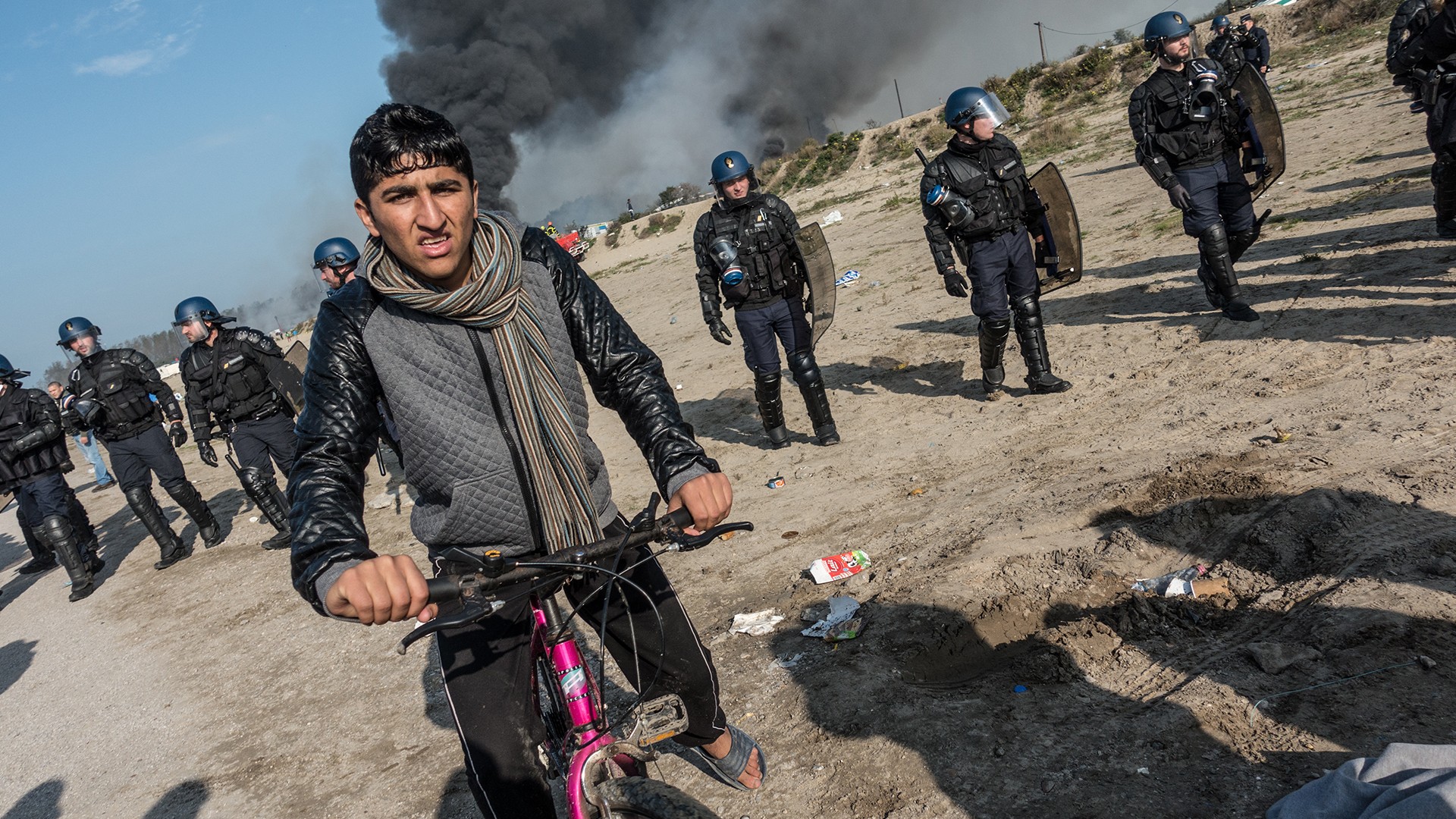Getty Images
Sweden's far-right populists won their biggest ever share of the vote in Sunday's general elections, underlining how immigration has reshaped politics even in one of Europe’s most tolerant democracies.Although the Sweden Democrats largely set the agenda during the campaign, the far-right party made more modest gains than once feared, coming in third behind the two mainstream parties who are now scrambling to form the next government.But while the populists may consider their 17.6 percent disappointing, after earlier polls had predicted they would finish in at least second place, analysts say the nationalist surge represents an alarming change in Sweden’s political landscape.The populist party still won their largest ever share of the vote – up from 12.9 percent in 2014 – and successfully shifted both mainstream parties closer to their position on key issues of immigration, integration and identity.“The mainstream has certainly moved closer to their positions,” Matthew Goodwin, visiting senior fellow in the Europe programme at the Chatham House think tank told VICE News.“You can say this party has perhaps underperformed but number one, it’s had a clear impact on the policy debate, and number two, Sweden is not exactly a failing state. If populists can get 17-18 percent in Sweden then they can pretty much get it anywhere.” Both the governing center-left Social Democrats and the center-right Moderates recorded among their worst results in modern history, with the rival blocs led by both parties left in virtually a dead heat.With nearly all votes counted Monday, the Social Democrats, together with their allies the Greens and the Left Party, had won 40.6 percent of the vote, while the opposition centre-right Alliance was on 40.3 percent. With overseas votes yet to be counted, the center-left bloc holds 144 seats, and the center-right 143.The country now faces weeks of uncertainty as both blocs engage in frantic horse-trading to try to form the next government.Both of the main blocs have said they will not work with the Sweden Democrats, a party with roots in fascism and neo-Nazism, as part of a tactic to isolate the group and its populist politics.The far-right party commanded strong polling numbers during the campaign as it hammered home its core issues of immigration, crime and integration to a voting public anxious over the arrival of 163,000 asylum seekers during the height of the migration crisis.But after surging to first-equal in polls in mid-July, support for the populists slackened in recent weeks, as other issues gained attention — including climate change, following a summer of record high temperatures and raging wildfires.Speaking Sunday as the results rolled in, Sweden Democrats leader Jimmie Akesson said he considered the increase in support for his party as a win, and vowed they would have a stronger say in the country’s politics.“We will increase our seats in parliament and we will gain huge influence over what happens in Sweden during the coming weeks, months and years,” he told cheering supporters.He called on Ulf Kristersson, the center-right Alliance’s prime ministerial candidate, to cooperate with his party rather than allow the governing Social Democrats to rule for another four years.Kristersson, who had seen his party’s vote drop from 23.3 percent in 2014 to about 19.8, rebuffed the approach. “We have been completely clear during the whole election,” he said. “The Alliance will not govern or discuss how to form a government with the Sweden Democrats.”Social Democrats leader and outgoing Prime Minister Stefan Lofven defied calls to step down after leading his party to their worst results since 1908 — 28.4 percent — although they remained the single largest party.He also vowed to work to form a government without the support of the Sweden Democrats. “All they can offer are growing divisions and hatred,” he said.But there has been speculation about whether the isolation of the Sweden Democrats will hold in the longer term, given that the center-right Moderates had previously said they would be prepared to broker a compromise with the nationalists on immigration, before reversing that stance after a change of leadership.READ: It's been hot as hell in Sweden — and that might have stopped the far-right surge“We have to remember there have been cracks in the dam,” said Goodwin. “I’m not sure the strategy of isolating national-populism is going to remain viable over the longer term.”He said the results showed Sweden was vulnerable to the same populist forces redefining politics across the Continent.“We’re left with this awkward fact that in Sweden — one of the most highly developed, advanced, economically prosperous democracies in the Western world with one of the highest standards of living — we have another record result for a national-populist party.”
Both the governing center-left Social Democrats and the center-right Moderates recorded among their worst results in modern history, with the rival blocs led by both parties left in virtually a dead heat.With nearly all votes counted Monday, the Social Democrats, together with their allies the Greens and the Left Party, had won 40.6 percent of the vote, while the opposition centre-right Alliance was on 40.3 percent. With overseas votes yet to be counted, the center-left bloc holds 144 seats, and the center-right 143.The country now faces weeks of uncertainty as both blocs engage in frantic horse-trading to try to form the next government.Both of the main blocs have said they will not work with the Sweden Democrats, a party with roots in fascism and neo-Nazism, as part of a tactic to isolate the group and its populist politics.The far-right party commanded strong polling numbers during the campaign as it hammered home its core issues of immigration, crime and integration to a voting public anxious over the arrival of 163,000 asylum seekers during the height of the migration crisis.But after surging to first-equal in polls in mid-July, support for the populists slackened in recent weeks, as other issues gained attention — including climate change, following a summer of record high temperatures and raging wildfires.Speaking Sunday as the results rolled in, Sweden Democrats leader Jimmie Akesson said he considered the increase in support for his party as a win, and vowed they would have a stronger say in the country’s politics.“We will increase our seats in parliament and we will gain huge influence over what happens in Sweden during the coming weeks, months and years,” he told cheering supporters.He called on Ulf Kristersson, the center-right Alliance’s prime ministerial candidate, to cooperate with his party rather than allow the governing Social Democrats to rule for another four years.Kristersson, who had seen his party’s vote drop from 23.3 percent in 2014 to about 19.8, rebuffed the approach. “We have been completely clear during the whole election,” he said. “The Alliance will not govern or discuss how to form a government with the Sweden Democrats.”Social Democrats leader and outgoing Prime Minister Stefan Lofven defied calls to step down after leading his party to their worst results since 1908 — 28.4 percent — although they remained the single largest party.He also vowed to work to form a government without the support of the Sweden Democrats. “All they can offer are growing divisions and hatred,” he said.But there has been speculation about whether the isolation of the Sweden Democrats will hold in the longer term, given that the center-right Moderates had previously said they would be prepared to broker a compromise with the nationalists on immigration, before reversing that stance after a change of leadership.READ: It's been hot as hell in Sweden — and that might have stopped the far-right surge“We have to remember there have been cracks in the dam,” said Goodwin. “I’m not sure the strategy of isolating national-populism is going to remain viable over the longer term.”He said the results showed Sweden was vulnerable to the same populist forces redefining politics across the Continent.“We’re left with this awkward fact that in Sweden — one of the most highly developed, advanced, economically prosperous democracies in the Western world with one of the highest standards of living — we have another record result for a national-populist party.” Cover image: Jimmie Akesson, leader of Sweden Democrats, reacts during the party's election night event in Stockholm, Sweden, on Sunday, Sept. 9, 2018. (Mikael Sjoberg/Bloomberg via Getty Images)
Cover image: Jimmie Akesson, leader of Sweden Democrats, reacts during the party's election night event in Stockholm, Sweden, on Sunday, Sept. 9, 2018. (Mikael Sjoberg/Bloomberg via Getty Images)
Advertisement

Drop in support for two major parties
Advertisement
Sweden Democrats: “We will gain huge influence”
Advertisement
